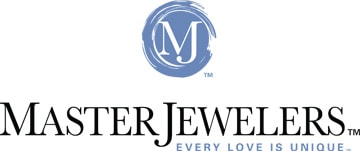When it comes to diamond shopping, there are a lot of buzz words that are often tossed around that you may hear. Shape, clarity, cut, color and more add to the unique vocabulary of jewelry shopping. Many jewelers often boast that they sell ethically-sourced diamonds. “Conflict-free” is another term you might hear while deciding on an engagement ring, diamond necklace or something in between. Between all of the lingo you might come across either on a website or in a jewelry showroom, it can be hard to decipher just what everything means and how exactly jewelers are using these terms to define their product offerings.
Diamonds have been a highly valuable commodity for hundreds of years. In countries where diamonds are mined, diamonds can play a part in civil wars and internal conflict, as people fight over control of these valuable, precious stones. Diamonds can be a cause of civil war and significant division and bloodshed within a country. It is important to ask questions when it comes to the diamond you are considering buying. Without asking questions, you may indirectly be supporting unsafe, unethical mining practices and political unrest in foreign lands.
So what questions should you ask when considering purchasing a diamond? Without getting into the weeds, there are a couple simple questions you should ask that any honest, reputable jeweler will be able to answer. First, ask your jeweler if the diamonds they are selling are ethically sourced. When a diamond is “ethically sourced,” it means that the diamond has been mined in conditions that aren’t affiliated with civil war and bloodshed. Many jewelers sell diamonds that are not ethically sourced because they may be able to get them cheaper or have lowered standards when it comes to quality. Diamonds that are not surrounded by violence are considered to be ethically sourced.
Ethically sourced diamonds also meet labor laws and environmental standards. Ethically sourced diamonds cannot be mined using child labor or pose serious environmental threats. A second question to ask is if the diamonds are conflict-fee. While they are similar, “ethically-sourced” and “conflict-free” describe two slightly different aspects of the mining and sourcing process. The term “conflict-free” describes specifically when diamonds are not financing a war or a rebel group within a country.
It is important to talk with your jeweler about what types of diamonds they sell and how they were sourced. At Master Jewelers, we strive to purchase only “conflict-free” diamonds and source precious metals from “environmental-conscious” foundries. We sell Bright Crystal Diamonds, a premier and exclusive brand of diamonds that follow a clear path, coming directly from the mines, passing an extensive testing and refining process and ending up in a stunning diamond ring.
At Master Jewelers, we care not only about the experience of our customers, but we care about our jewelry pieces from start to finish as well. We follow along with the journey our diamonds take, from the mine to your hands. Stop by our showroom in Indianapolis today or take a look at some of our one-of-a-kind collection online. Discover the difference about what makes our diamonds unique and unlike any other. Besides being ethically sourced and conflict-free, they are some of the brightest diamonds in the world.
Diamonds have been a highly valuable commodity for hundreds of years. In countries where diamonds are mined, diamonds can play a part in civil wars and internal conflict, as people fight over control of these valuable, precious stones. Diamonds can be a cause of civil war and significant division and bloodshed within a country. It is important to ask questions when it comes to the diamond you are considering buying. Without asking questions, you may indirectly be supporting unsafe, unethical mining practices and political unrest in foreign lands.
So what questions should you ask when considering purchasing a diamond? Without getting into the weeds, there are a couple simple questions you should ask that any honest, reputable jeweler will be able to answer. First, ask your jeweler if the diamonds they are selling are ethically sourced. When a diamond is “ethically sourced,” it means that the diamond has been mined in conditions that aren’t affiliated with civil war and bloodshed. Many jewelers sell diamonds that are not ethically sourced because they may be able to get them cheaper or have lowered standards when it comes to quality. Diamonds that are not surrounded by violence are considered to be ethically sourced.
Ethically sourced diamonds also meet labor laws and environmental standards. Ethically sourced diamonds cannot be mined using child labor or pose serious environmental threats. A second question to ask is if the diamonds are conflict-fee. While they are similar, “ethically-sourced” and “conflict-free” describe two slightly different aspects of the mining and sourcing process. The term “conflict-free” describes specifically when diamonds are not financing a war or a rebel group within a country.
It is important to talk with your jeweler about what types of diamonds they sell and how they were sourced. At Master Jewelers, we strive to purchase only “conflict-free” diamonds and source precious metals from “environmental-conscious” foundries. We sell Bright Crystal Diamonds, a premier and exclusive brand of diamonds that follow a clear path, coming directly from the mines, passing an extensive testing and refining process and ending up in a stunning diamond ring.
At Master Jewelers, we care not only about the experience of our customers, but we care about our jewelry pieces from start to finish as well. We follow along with the journey our diamonds take, from the mine to your hands. Stop by our showroom in Indianapolis today or take a look at some of our one-of-a-kind collection online. Discover the difference about what makes our diamonds unique and unlike any other. Besides being ethically sourced and conflict-free, they are some of the brightest diamonds in the world.

